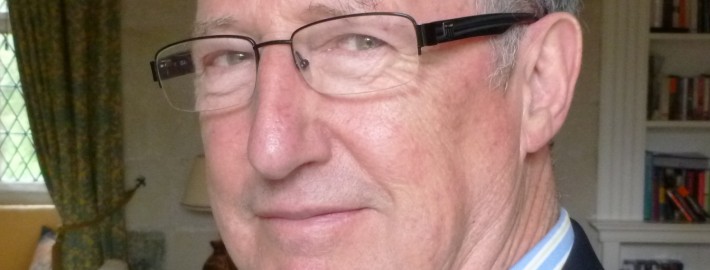Atheism is in crisis
Atheism is in crisis, not least because it fails to satisfy human needs.
This may seem a questionable statement given the success of the atheist author Richard Dawkins, but it’s beginning to occur to many of his readers that the God of the Old Testament which he so vigorously debunks, is not believed in by most Christians, Jews or Muslims today. He is demolishing a straw man.
And the consequences of discarding God are worrying the most unlikely people, some leading atheists.
In a remarkable article for the weekly magazine The Spectator the atheist, Douglas Murray, faced up to the difficulties involved: “The greatest challenge in the atheist argument,” he wrote, is that “contra most atheists, ethics are self evidently not self evident”.
As he pointed out: “We should look back only a century when entire schools of very intelligent non-believers could discern no moral objections to eugenics.”
“We may have to accept,” he said “that the sanctity of human life is a Judeo-Christian concept which might very easily not survive Judeo Christian civilisation. Those who do not believe in God and who stare over that cliff,” he went on “may realise that only three options remain open to us.
The first option is to fall into the furnace.
Another is to work furiously to nail down an atheist version of the sanctity of the individual.
If that does not work, then there is only one other place to go. Which is back to faith, whether we like it or not.”
In the same edition of The Spectator Theo Hobson writes that “the energetic universalism of modern humanism is rooted in Christianity”. He quotes the Marxist author. Terry Eagleton. as saying that “rational humanism is rooted in the Protestant passion for reform,” and he refers to the point made by American writer, Marilynne Robinson, in relation to the US Declaration of Independence. She writes:
“Is it self evident that all are created equal? Only in a religious conception. Jefferson makes the human person sacred and thereby sets human rights outside the reach of rationalization.”
The most moving account of this disillusion with atheism which I have read is contained in the latest book by one of our foremost writers, Julian Barnes.
In Levels of Life, which concerns the death of his much loved wife in 2008,
Barnes reveals that his devastating loss has made him inconsolable. He writes:
“When we killed – or exiled – God, we also killed ourselves. Did we notice that sufficiently at the time?
No God,
no afterlife,
no us.
We were right to kill Him of course, this long-standing imaginary friend of ours. And we weren’t going to get an afterlife anyway.
But we sawed off the branch we were sitting on.
And the view from there – even if it was only the illusion of a view – wasn’t so bad”.
It was with these thoughts in mind that I went down last month to Hay on Wye, on the borders of England and Wales, to chair some debates organised by The Institute of Arts and Ideas which coexists with the Book Festival there. Religion was not directly mentioned and the organisers are mostly atheists.
They like to be provocative in their choice of subjects for debate.
One took as the question to be addressed: “Can neuroscience settle philosophical debates about the mind”.
The three members of the panel were a cognitive scientist, a philosopher of mind and language, and a neurobiologist. None were religious. Their answer was a resounding “no”. Neuroscience cannot settle debates about the mind.
The neuroscientist Professor Stephen Rose said that “we are not just a bunch of neurons”, that the brain is the servant of the mind and that we are nowhere near understanding how the mind functions. He said that 93% of brain scans, for example, were pointless. He later upped that to 98%
All three panellists agreed that neuroscience was in crisis, engaged in “scientific fishing expeditions”, without theories to investigate. The early hopes that we might understand consciousness for example were in shreds.
The mind remains a mystery.
A second debate also addressed a provocative question. Under the heading “Beyond Good and Evil” it asked: “Is Morality an instinct.”
The panel consisted of a philosopher, a neuroscientist and a Professor of Bioethics. Again, none were religious. To the likely disappointment of the organisers the answer came back in the negative… No, morality is not an instinct.
One panellist said that instinct played a part in some moral decisions but the Professor of Bioethics, John Harris, was insistent that “Morality is a matter of rational reflection and judgement, not instinct.” When I pressed him to say where concepts of good and evil and equality came from, he did not seem to me to have a clear answer.
The point I am making is not that religion is winning the argument against atheism but that it is very much in the ring and that its opponent is experiencing a great deal of self doubt, perhaps even exhaustion. Atheism does not have answers to some of the most important existential questions, and cannot satisfy our spiritual needs.





Leave a Reply
Want to join the discussion?Feel free to contribute!